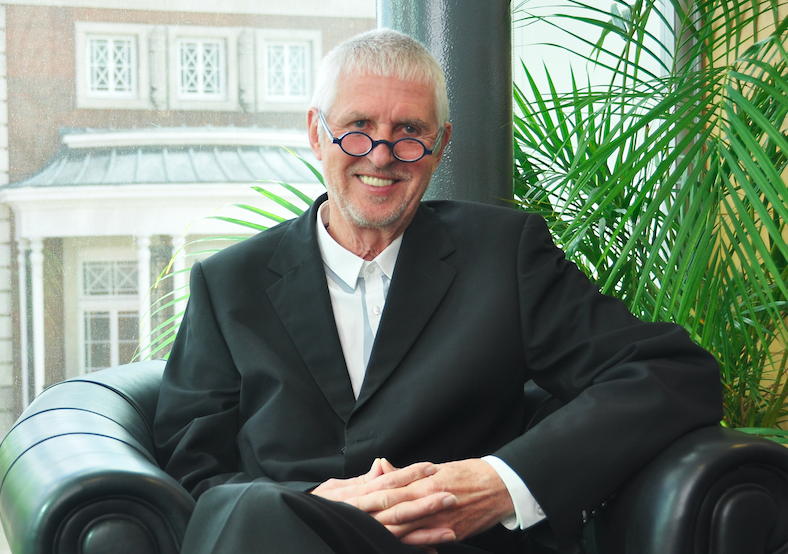
Photo: Screen-Shot-2018-03-27-at-09.37.04
How cities can better attract investment
27 March 2018
by Jonathan Andrews
By Professor Michael Parkinson* CBE, Associate Pro Vice Chancellor for Civic Engagement, University of Liverpool
In an increasingly globalised world, cities have to stand out from the competition to be investable and attract investment. A city must differentiate itself by playing to its strengths, and celebrate its differences, in an authentic way. For it is not just the tangible, economic assets of a city that count. The unique qualities of a place that distinguish it from other cities domestically and internationally also matter. In a global world, place quality becomes more, not less, important economically.
Broadly speaking, there are two kinds of different but related investment concerns—what are the economic fundamentals of the place and what are its place qualities? For a city to be successful it must satisfy both the economic and the mood analysis of a potential investor. Striking this balance is not easy, but it is achievable for a city with the right approach.
Of course the economic fundamentals of a place are crucial to investors. Whether a city is well connected, highly skilled and diverse, has a good infrastructure and is well governed is crucial to its economic potential. However, place quality also matters. What is it like to live there? Does the city have a rich culture and history? Is the housing and environmental quality good? Are the schools good and innovative? Does it have a diverse population? Does the city feel creative, welcoming, innovative–open to new ideas and new blood? The more a city develops its economic fundamentals, the more its unique, authentic qualities—its personality—matter in separating it from cities with equally powerful economic characteristics.
We know that people tend to move to cities for their careers and job opportunities. But often they will stay because of the quality of life in the city. And that can and should become as critical part of the city’s branding that will in turn help reinforce a positive view of the city and differentiate it from its competitors.
For a city to be successful it must satisfy both the economic and the mood analysis of a potential investor.
Smart decision-makers understand the significance of attracting and retaining skilled workers to their cities. And they recognise that the quality of life for workers and their families is an increasingly important factor. So places with the assets of a good environment, distinctive architecture, cultural facilities and quality housing stock help drive up land values which in turn makes private sector investment and development more likely. This improves the scale and quality of city regions’ physical offer–office, retail, leisure, residential–which in turn encourages economic growth. A powerful city brand can be used to promote the location and establish a presence internationally to attract investment.
Liverpool, UK
Liverpool is a great example of a city that has capitalised on its unique identity with a powerful brand that reflects its historic assets and achievements but also reflects it current and future market opportunities. This northern English city has a powerful brand that not only distinguishes it from other cities in the UK, but also from its global competitors. As one of the leading ports of the 19th century, it has a strong mercantile history that saw it transport people, ideas and products all over the world. This powerful exporting heritage is evident today. Liverpool is one of the fastest growing parts of the UK economy outside the southeast and a leader in several areas such as personalised medicine, advanced materials and the treatment of tropical and infectious diseases.
As a traditionally multi-ethnic and diverse city, Liverpool continues to retain this reputation to its advantage. In its rapidly growing Knowledge Quarter it welcomes thousands of foreign students to study every year. The University of Liverpool has a campus in China with 10,000 students, strengthening the historic relationship with the country. The music scene of the 1960s, the continuing power of football and its cultural heritage of drama, language and the UNESCO status waterfront make it a compelling place. Liverpool has always been a global city; it’s in the very DNA of the city. It is a trading, exporting, open, globally connected place which makes it even more attractive in a post Brexit economy—one of the reasons it is the obvious host city for a major global trade event like the International Business Festival.
National economies are becoming less relevant in a global world so having international strategies is crucial for cities wanting to attract investment. There are opportunities to be found all over the world and, particularly in the time of Brexit, cities must look beyond Europe as well as beyond their own country. The trick for organisations is to be locally rooted in a global economy. For a city this means being local and global at the same time even though it is not easy to achieve. Offering people a vibrant, cosmopolitan place to live, work and socialise must be balanced against an international offering to global investors. If a city can strike this balance, then it will be successful.
The traditional economic fundamentals still matter to investors and therefore to cities. The primary forces that drive investors—value, profit, jobs—remain important. But quality, authenticity and diversity are becoming ever more important in a homogenised world. The best advice you can give to cities is the same advice you can give your children—just try to be your very best own self.
*Professor Michael Parkinson CBE, Associate Pro Vice Chancellor for Civic Engagement, University of Liverpool, will be speaking at the 2018 International Business Festival, on Urbanisation and Cities day, 13 June 2018. To find out more and buy tickets see: www.internationalbusinessfestival.com











